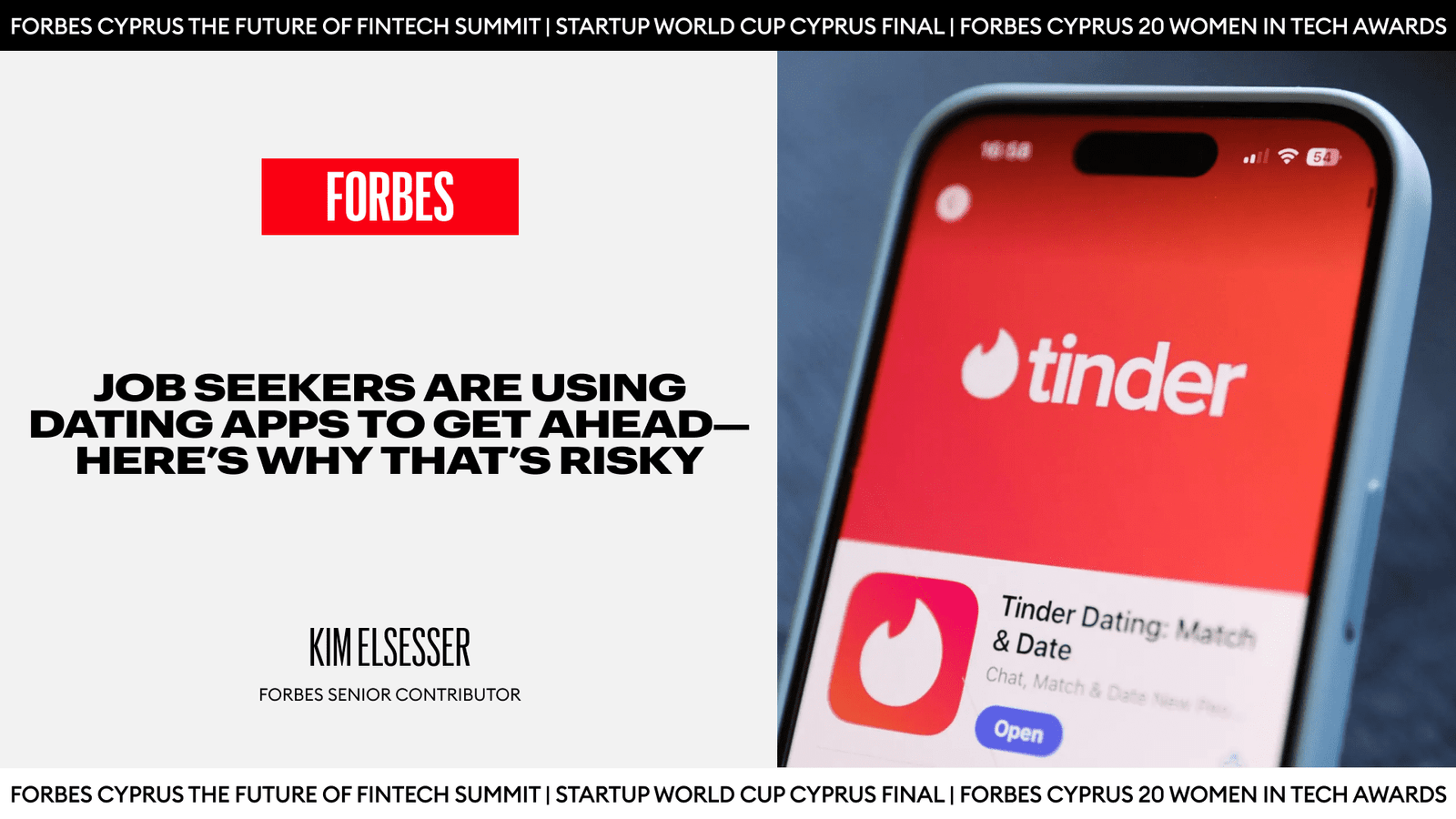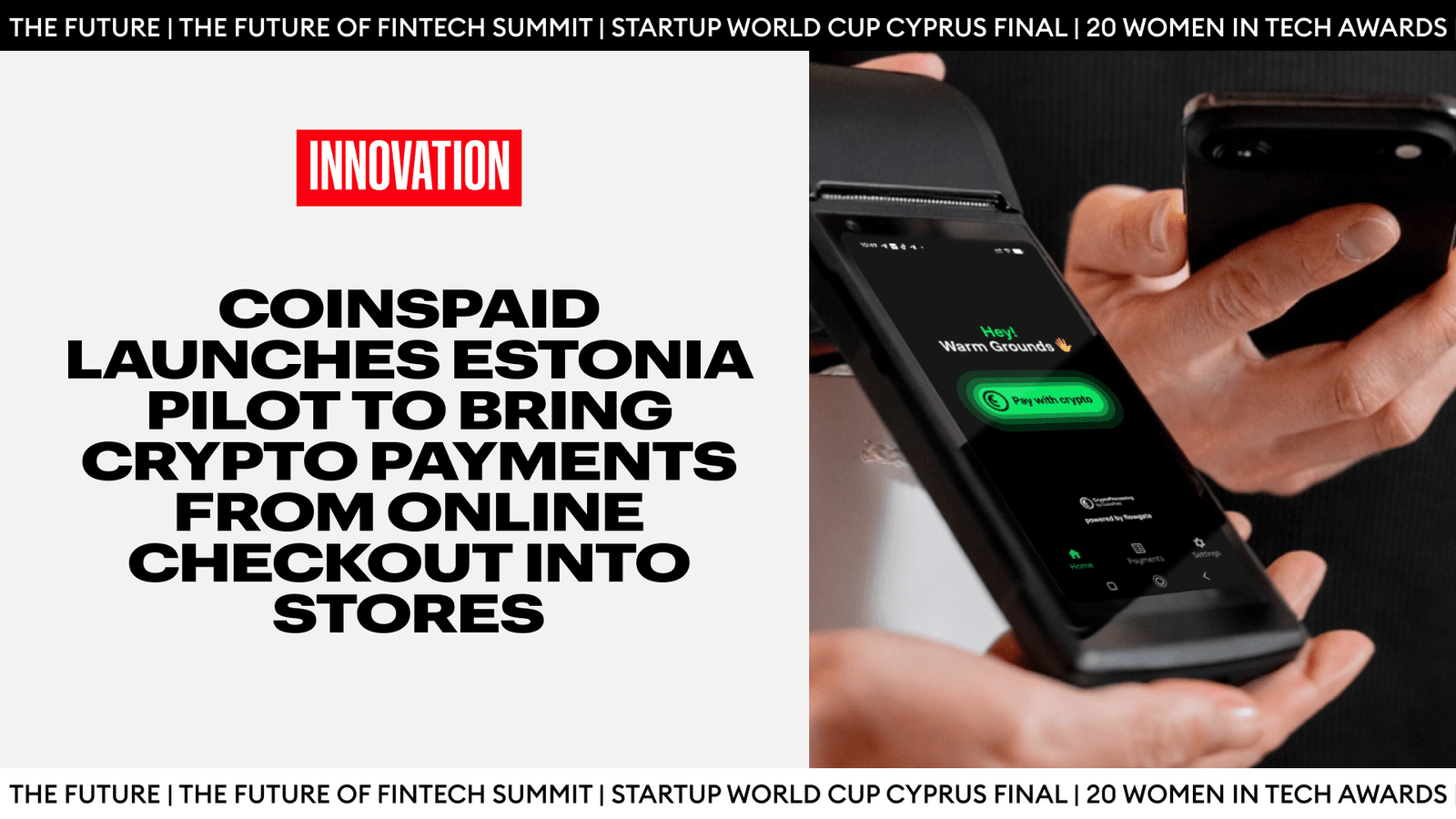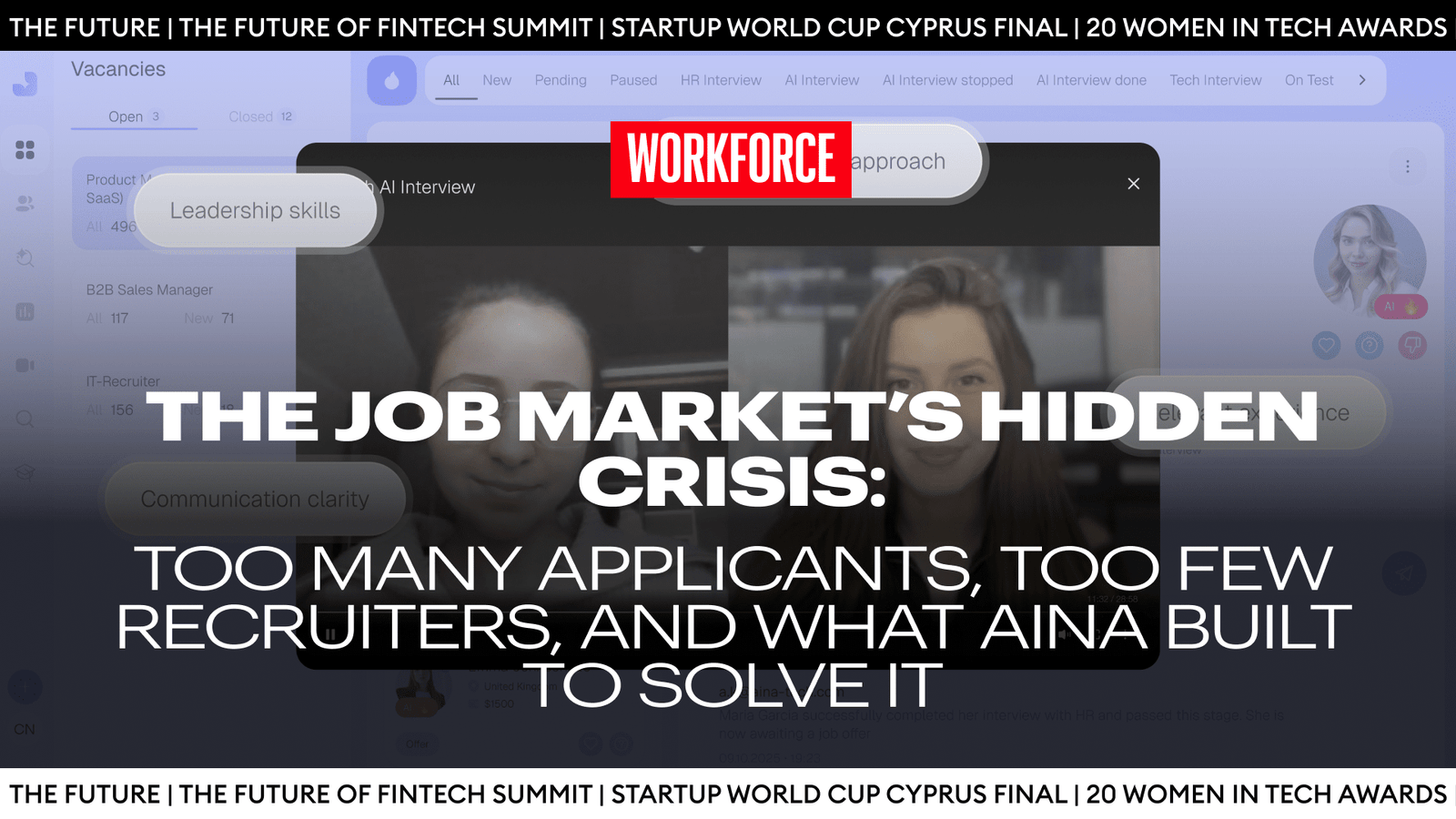A surprising number of job hunters are turning to dating apps to make connections and find new career opportunities. And, according to a new survey, many say it is paying off. Although it may sound like a creative networking alternative, using dating apps to advance your career can be a risky move.
The new survey, from ResumeBuilder.com, asked 2,225 dating app users whether they’d ever used the platforms to boost their careers. A whopping one in three said they had. And one in ten said it was the primary reason they were on the dating app.
Follow THE FUTURE on LinkedIn, Facebook, Instagram, X and Telegram
Men were slightly more likely than women to use dating apps for career purposes (37% versus 30%), and the trend held across all ages within the 18-to-55 group surveyed. Higher earners were especially likely to experiment with this strategy, and nearly half of those making over $200,000 reported using dating apps for professional gain. Tinder, Bumble, Facebook Dating, and Hinge were the most commonly used platforms by participants.
The connections made on dating apps often translated into real career wins. Nearly half of users who networked on the apps said they gained valuable career advice, while 39% landed an interview and 37% ultimately received a job offer. In fact, only one in ten said no career benefits materialized from their efforts.
The survey didn’t detail exactly how these career connections unfolded, so we don’t know if users flirted first and later followed up with a job or networking request. A large majority of respondents said they were upfront with their matches about their motivations.
Nonetheless, 38% said they ended up having a physical relationship with the people they connected with for job-related reasons. Perhaps not surprisingly, those who had a physical relationship were also more likely to get a positive job-related outcome.
Granted, this wasn’t a peer-reviewed study. It was conducted by a resume-building site, and participants were recruited via the Pollfish survey platform. Therefore, the participants may not represent a purely random sample of dating app users. However, the survey results are on par with other estimates of the phenomenon. The LGBTQ+ dating app, Grindr, estimates that a quarter of its users are there to network, and its CEO admits to hiring someone from the app. And Tinder found the issue problematic enough to include “Make personal connections, not biz ones,” in its list of 13 user rules.
What To Consider Before You Try To Swipe Your Way To A New Job
The job market can be tough, and finding creative ways to expand your network is key to career advancement. Nearly half of those who turned to dating apps for professional reasons said they were driven by a challenging job market, and about one in three admitted to doing so out of desperation to find work or move ahead. Some career counselors are even recommending the strategy to their clients.
Some argue that dating apps offer an edge over traditional networking sites because potential contacts have their guard down when looking for romance. Users may also be checking the dating platforms more frequently than they check work-related apps like LinkedIn. “Dating apps, in contrast [to traditional networking platforms], provide a more personal and low-pressure environment for building authentic relationships,” said says ResumeBuilder.com’s chief career advisor Stacie Haller in the survey report.
Still, before you start swiping for career advancement, it’s worth considering the potential pitfalls. First, turning to dating apps for professional gain requires some boldness. If you match with someone under the pretense of romantic interest and then pivot to a professional ask, it can feel misleading and could backfire. At the very least, it seems uncomfortable. Conversely, being upfront about using a dating app for networking can create its own awkwardness. In response to an open-ended question about their experience in the survey, several participants mentioned that networking on a dating app was awkward. One reported, “It was definitely weird. Feels like the system is so broken that folks have to resort to doing this.” And another said, “It worked, but you need the audacity to ask.”
And if you’re already in a romantic relationship, things can get even more complicated. Even with complete honesty about your intentions, using a dating app for career purposes could create a rift with your romantic partner. Transparency helps, but it may not be enough to get them through seeing you chat with potential connections on a platform built for romance.
In addition, the dating platform context makes it more likely that your interest will be misinterpreted. A friendly message about your career can quickly veer into something much more personal. Power dynamics also come into play. If one party has hiring authority, or can offer a coveted introduction, the situation can easily cross ethical lines. The fact that those who had a physical relationship with their contact were more likely to get job benefits underscores just how easily these interactions can slide into ethically questionable territory.
The complications don’t necessarily end once you get the job. If colleagues learn you matched with your new boss, it might cast doubt on your credibility before you’ve even had a chance to prove yourself. Women may have an additional obstacle here. When women blur professional and personal lines, they risk judgment or reputational harm in ways men rarely do.
And the risks don’t fall solely on job seekers. For managers or hiring professionals, hiring someone you met or were romantically involved with through a dating app can raise serious ethical and legal concerns. Even if the relationship was consensual, it could lead to questions about favoritism, conflicts of interest, or even allegations of sexual harassment if the new employee says they had to sleep with you to get the job.
While it may lead to the occasional success story, using dating apps as a networking tool is a high-risk strategy that blurs professional and personal boundaries in ways that can be hard to control. That doesn’t mean that LinkedIn is the only alternative for those seeking to network. Conferences, university alumni networks, networking communities, professional associations and industry-specific Slack groups are just a few options that can help you make connections without having to navigate romantic overtures.












